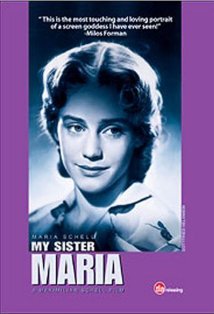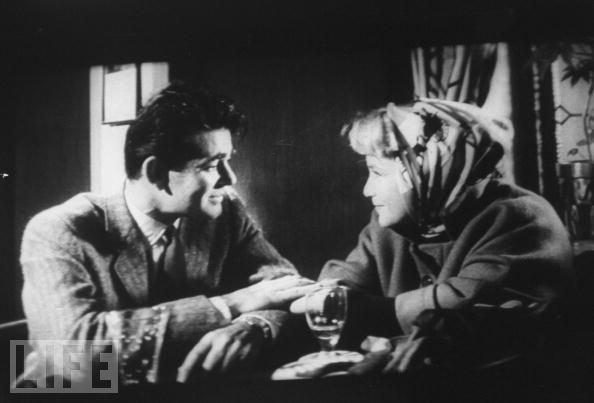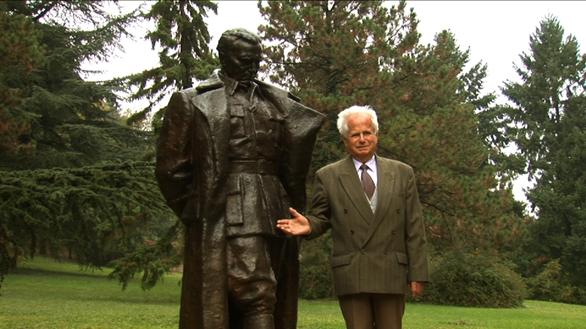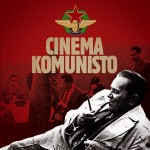These are two films that I encountered recently quite by chance. I came across Mila Turajlic’s Cinema Komunisto (2010), a pithy and often humorous historical account of the postwar Yugoslav film industry, because the filmmaker herself sent me a copy last month; and I just now caught up with Maximillian Schell’s My Sister Maria (2002) because my Viennese artist friend (and sometime Chicagoan) Roxane Legenstein contacted me about it just after the New Year, wondering why it hadn’t been better received in the U.S.
Let me try to answer Roxane’s query first. Just about everyone I know accepts the premise that fiction and its various trappings can be used as a legitimate vehicle in support of the truth, but there are few documentaries that test this premise quite as radically as Schell’s lovely and vibrant portrait of his aging sister, which goes even farther than Wim Wenders’ Lightning Over Water (1980), about the last days of Nicholas Ray. My Sister Maria includes many clips from Maria Schell’s acting career in both Europe and Hollywood, and some speculations about her recent mental condition as well as details about her running up so many debts that Maximillian had to sell a late Rothko painting in order to settle them all. His sister is obviously present in many (if not all) of the restaged events, and without knowing the production details, one has to accept on faith the brother’s choices involving his sister’s complicity or lack of complicity at various junctures.
Like Roxane, I find the film “full of love and tenderness,” but I can also understand the discomfort of some of my colleagues in coming to terms with it, even if I don’t entirely share it. (Roger Ebert is one of those who made a brave try.) The clips and Maximillian’s own accompanying voiceovers (which mainly consist of identifying other actors) are so spellbinding that I can easily forgive the altered screen ratios and the absence of any clip from The Mark (1961, see below), which has the Maria Schell performance I remember best and cherish the most. And Maria Schell’s candor, wit, and intelligence are so frequently on display that they clearly place all the fictional ruses in some perspective.
I can’t honestly say that I saw quite all of Cinema Komunisto because, to be frank, the DVD kept jamming on me regardless of whatever player I tried to use, so I inevitably had to skip a few segments. Somehow this seemed perversely fitting in relation to the film’s obviously mixed feelings about the former Yugoslavia’s cinematic past and present, which is major source of what makes the film so fascinating and entertaining. The most prominent of these mixed feelings entail a bittersweet, ironic nostalgia about the cinephilia of Tito, who insisted on seeing a film a day for several decades (his loyal and proud projectionist, the most affecting of all the interviewees, has wonderful stories to tell about trying to find fresh features for his boss to see), and who took special pains in vetting the details (and casting decisions) of various period features, especially those about the war, in which he figured as a character. (Richard Burton was clearly his favorite version of himself.)
What these two films in common, despite all their obvious differences, is a complex love-hatred towards the cinema itself as a glamorous activity and calling, and all the mixed blessings that come along with this multifaceted package. [1/6/11]





